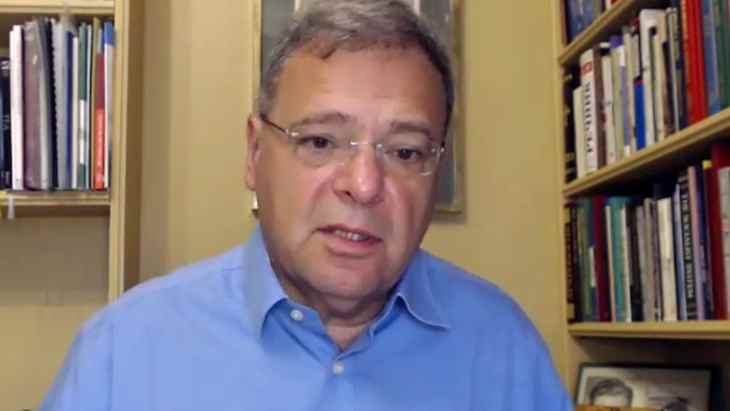Europe is at war, insists Julian Popov, a Fellow of The European Climate Foundation, and Chairman of the Buildings Performance Institute Europe. Because of that, he urges governments to prepare and implement wartime strategies for energy resilience in view of the consequences of the war in Ukraine. Timing is crucial, he explained in a public material he discussed in detail at EnergynomicsTalks, thus “it is essential to focus on measures and projects that could deliver material result before the next winter”.
Author and co-author of several books, Julian Popov was voted twice as one of the 40 most influential voices in European energy policy. He writes regularly on current affairs, climate and energy policies and energy security. This spring, he worked on a document setting out some measures which could lay the foundation of a resource resilience strategy/law that needs to be urgently developed and implemented. Initially, the memo was focused on Bulgaria, but later it was expanded and it should be relevant to other countries, to the EU as a whole and beyond.
In his opinion, the European Commission acted too late against the dangerous dependency on Russian energy imports the European Union has developed, especially to have “have emergency strategies prepared”. At the same time, this is mainly the job of “national governments, local governments, and individuals”, Julian Popov stressed.
We have a huge communication problem: “The politicians should have to honesty to say call the war for what it is – a war, and then to have a wartime strategy”. “Not to say ‘there is a war in Ukraine’, but ‘we are at war, we are engaged in this war on the energy side, on the supply side, on the inflation and various others. It has to start with the language”, Julian Popov said.
There are numerous models and recommendations provided by the International Energy Agency, the European Commission, the Romanian and the Bulgarian government. What is still missing is “a way of communicating these things in a more lighthearted way, more engaging and with more solidarity”. Not to coerce people into conformity, but nudging them to change their behavior. And then people will respond, he believes, like they did in the UK during the WW2 (“Dig for victory!”), “they will start thinking about what they can do as well”.

A picture Julian posted on Facebook became viral and provoked a number of conversations on radio and television (here is the original in Bulgarian).
Julian Popov considers that focusing on the offer side will not solve the energy problem on the short term, but measures on the demand side. “The EC Communication seriously lack detail on short and medium term opportunities offered by energy efficiency measures”, writes his “Resource resilience strategy”. BPIE calculated that insulating attics and roofs (a quick, low cost and easy measure) can save up to 14% of residential heating energy, while checking heating systems and upgrading low cost heating controls will save approximately 10% of heating energy. The Regulatory Assistance Project (and particularly Jan Rosenow) have been studying and promoting the effect of replacing gas boilers with heat pumps. Another calculation, Julian Popov mentioned, shows that not using tumble dryers – for drying clothes after washed in a machine – is a massive source of electricity (and bill) reduction. The massive transition from incandescent to LED lighting is another low-cost solution with a significant impact on power consumption. There are many solutions, many practical actions that people can take, depending on every one’s particular way of life.
As a medium-term approach, Julian Popov urges the governments “to create the opportunities for solar installation in a “chaotic’ way”. Usually, the governments tends to think they cannot allow PV or wind capacities because there is no grid connection. “Leave anybody who wants to install solar, with grid connections or without grid connection, with storage or not, as fast as possible, as much as possible! Let it develop in a chaotic way so that it can fill the current gap and then you can think about the grid connections. Investors and developers will take their risks, because the energy prices are very high. What we see now is a massive boom of solar, [but] one problem is that we still have very delayed and difficult permitting, authorities are introducing bottlenecks, when they were supposed to create the opportunities for quick permitting procedures”, he explained.
Governments should propose a chain of wide variety of demand management and demand reduction policies, which will be beneficial for the national system and beneficial for the pockets of the consumer. All we need to do is to be open and face the situation and, act quickly and deal with the crisis rather than trying to avoid talking about it.
